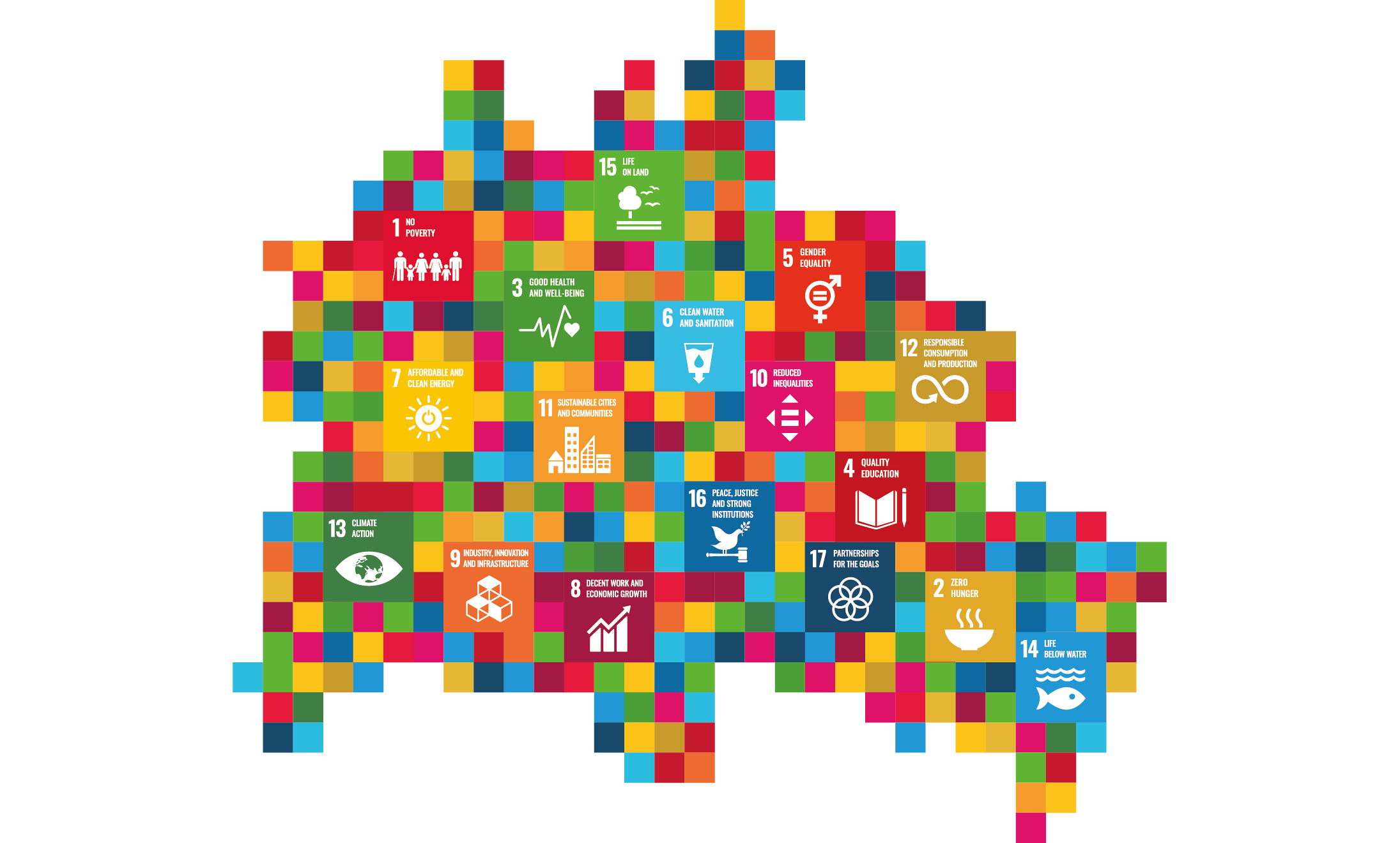At the end of the 2016–2021 Berlin legislative period, the former Senate Department for the Environment, Urban Mobility, Consumer Protection and Climate Action (now: Senate Department for Urban Mobility, Transport, Climate Action and the Environment), in collaboration with all Berlin Senate Departments and the Governing Mayor of Berlin – Senate Chancellery, drew up an exemplary presentation of measures and projects to implement the Sustainable Development Goals in Berlin. Through the most varied activities, the administrative authorities, alongside their partners from the scientific, civil society and economic spheres, are already contributing to the cross-cutting task of bringing sustainability to life in the daily work of the State of Berlin. In conjunction with the Indicator Report 2021 – sustainable development in Berlin, there is an inventory of the implementation of the 17 Sustainable Development Goals in Berlin, providing a basis and starting point for the
development of a 2030 Sustainable Development Strategy for Berlin in the 2023–2026 legislative period.
The brochure, “The 17 sustainability goals in Berlin – examples for implementation at state level” is unfortunately only available in German.

